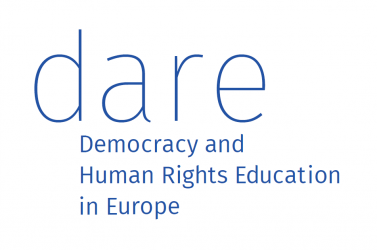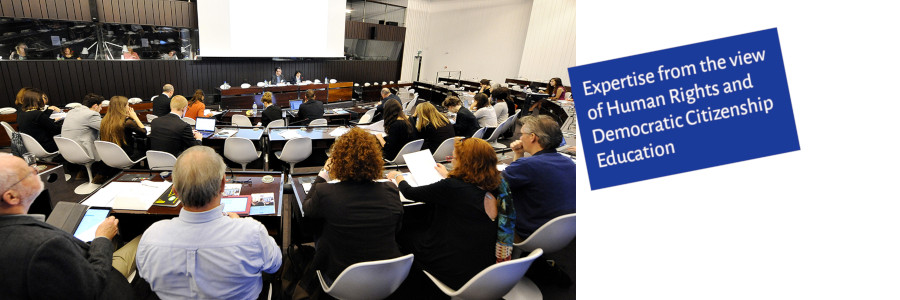- Revision process of the European Key Competences for Lifelong Learning
- May 2017
The DARE network welcomes the EU initiative for the revision of key competences on lifelong learning. As a network providing expertise from the view of non-formal Human Rights and Democratic Citizenship Education we want to underline some points to be considered in the revision process:
The orientation of any learning on key competences has become meanwhile a well- established tool for the design, layout and implementation of any learning processes. Instead of reinventing the wheel we ask for slight and reasonable development of the frames aiming for more coherence among the single competences fields. Our aim should be not to put learning systems and environments under more pressure as they already are. Adult learning and youth work have developed in the recent years a various amount of tools oriented on key competences to train pedagogical staff. Also there are plenty of educational concepts to apply the existing frames of key competences practically into any learning settings with children, youth and adults.
The solely economic utilization of learning is a threat to democracy. Instead the transversal character of learning in order to create the conditions for a meaningful living together in our societies needs to be more acknowledged. Therefore the relation of all key competences to Human Rights, to civic and social development be it on the personal level, be it on societal level needs to be better worked out.
Civic competences enable for adequate participation, democratic involvement in society and therefore should be of a transversal character, which affects all fields of competence learning. This transversal character of civic competences should be more focused when reframing the LLL- competencies framework.
Especially we ask for coherence of the LLL-competences with other competences models such as the competences for democratic culture provided by the COE.
To appropriately learn key competences requires adequate learning environments.
Especially for the field of non-formal education – be it in youth work or adult learning – in most EU countries (and beyond) there is a huge gap of systemic and infrastructural back- up, which in the recent years has become bigger: this relates to – initial training of staff, the financial support to organisations providing NFE, the establishment of non-formal education as independent training and learning field which is not primarily oriented on the idea of economic utilization, but asks for a wider impact on democratic and pluralist societies. In line with the revision of key competences framework we ask the EU to put more emphasis on the systemic back-up and reflect upon the need to establish adequate learning pathways and systems. Especially under a lifelong learning perspective the importance of a proper connection between the field of non-formal education and formal, higher and VET education becomes more important and can work only if the different learning educational fields (formal, non-formal, informal) are adequately recognized.
Acquiring digital competences should be much more oriented towards their democracy related dimensions: the importance to offer training and experiential learning spaces for critical media use, media literacy and the ability to reflect upon social media in democratic societies has become a core field core field with high relevance for living together in democratic societies. It should be entirely clear that this dimension requires age-adequate learning settings and also should be recognized as being of a transversal character. Especially related to learning with youth and kids we need to emphasize that digital competences are an emerging learning field where the learners have often more skills than the educators.There should be highlighted the need to develop new forms of assessment that fully take into consideration the different approaches and aims of formal, non-formal learning and of informal learning.
The competence model clearly should refer to the holistic character of learning with the aim to contribute to the shaping of impact oriented learning processes: Civic Competence is formed in a wide, heterogenic learning space and therefore characterized through an interaction of different learning experiences that have to be connected in a consciously designed learning process. The more these different learning opportunities complement each other the more the learning process becomes efficient and sustainable. Such processes can be designed in formal and non-formal learning environments. They combine group interaction and learning, self-experience, cognitive learning, opportunities for informal learning and reflection and should provide any learner for experiencing democratic self-efficacy.
More information
Georg Pirker,
DARE network secretariate – pirker@adb.de
http://www.dare-network.eu


